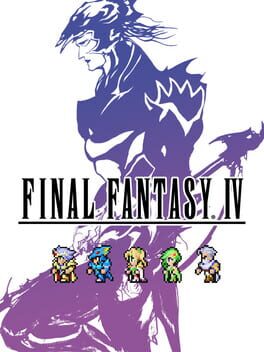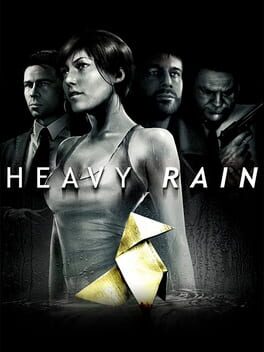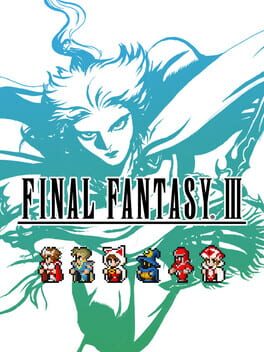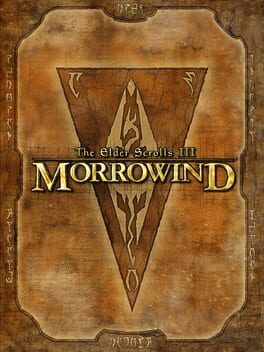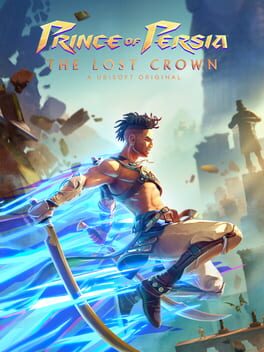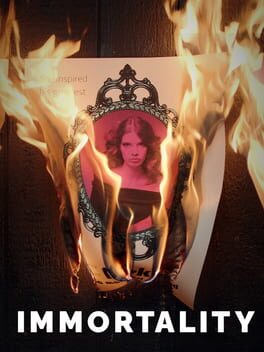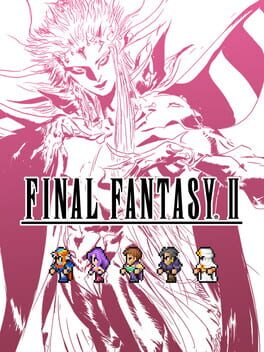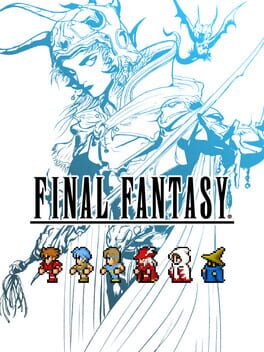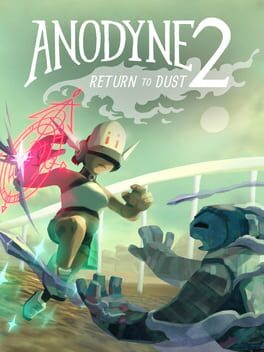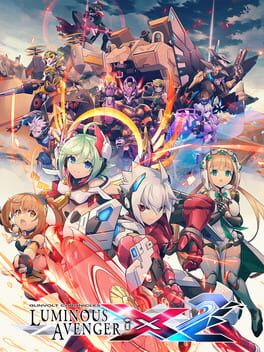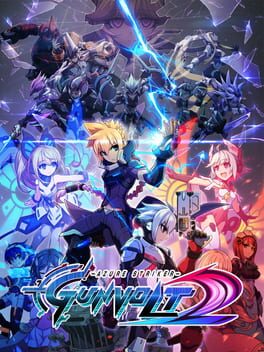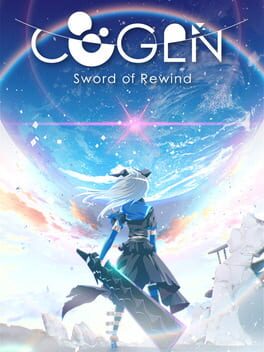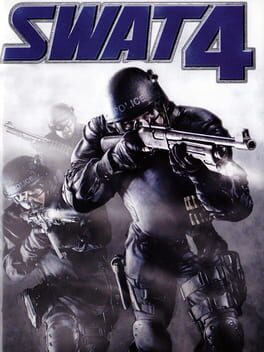grace_machine
37 reviews liked by grace_machine
Final Fantasy IV
2021
To play Final Fantasy IV is to be forced to appraise it along two axis: against the moment it came out, and in comparison with what JRPGs would become afterward. It is a game that feels at once boundary pushing, palpably energized by the new hardware of the SNES, and simultaneously thin, spinning a tale that would be handily outclassed in terms of complexity within a few short years. I ended up liking FF4! But it is a bit of a strange object, permanently caught in a transitionary period between the evocative bareness of the NES Final Fantasies and Square’s future, more extravagant output.
FF4 goes out of its way to reintroduce the series to new players, often functioning as a greatest hits of the prior games. There’s a gradually intensifying sci-fi narrative bent last hinted at in FF1, affixed onto a plot that feels like an expansion of FF2’s fight against an evil empire (complete with a rotating cast of playable characters), all joined by an expanding world map, breadth of locations, and discrete character abilities that feel in line with FF3. FF4 takes things further by constantly foregrounding its narrative and world in ways that the NES did not allow for. FF2’s opening scene, where your party is cut down by the empire’s troops within the battle screen, feels like the template upon which FF4 bases much of its identity on. Characters have firmly established combat roles with unique abilities (largely modeled on some of FF3’s jobs). They will often leave or join battles mid-fight, meaning that only Cecil is consistently in your party throughout the entire game. “Cutscenes” will often play out as automated battles that you view as an outsider; in one of the game’s best moments, you have to defend against Cecil’s shadow self in order to win and become a Paladin. All of this represents a new interest in integrating characterization into what your party members can do in battle.
This is all very cool to see! But FF4’s actual thematic content lacks depth. Characters typically get One bit of growth or wrinkle to complicate their archetypes. For instance, Cecil has to atone for his sins of pillaging and (accidentally) blowing up a town by becoming a Paladin…and then he’s pretty much good to go from there. Kain tries to be a rival/foil to Cecil (as well as his friend), but continually gets brainwashed. Rosa is a woman. There are characters I have a little more affection for than others (the summoner Rydia, who disappears partway through only to return older and more experienced, is my favorite), but none feel particularly interesting in and of themselves. Nor does the game seek to take its most interesting ideas, like its opening half hour where you work for the bad guys, anywhere other than the path of least resistance. FF4 is therefore in a bit of an awkward position, more interested than ever in emphasizing its narrative but unequipped to fill all that time with something particularly engaging. At least the setting feels at its most diverse and exciting yet! Towns probably get the biggest facelift, filled with the best bits of NPC dialogue in the series so far and demonstrating more of an inclination toward naturalism. There are finally bespoke rooms and buildings you can enter that serve no other purpose than to give the world a little more personality!
Combat also gets a pretty major overhaul with the implementation of the Active Time Battle (ATB) system, wherein each character has a bar that fills up over time before they can perform an action. I like how this represents each character’s agility more, but I personally never got much out of the added focus on reaction time; I kinda wished the wait mode just paused time whenever one character’s bar filled up. More interesting is how the game continually rotates your party members, which effectively ends up de-incentivizing grinding for most of the game (since you could lose a character you’ve put time into building up at any given moment). This meant that the difficulty curve generally resulted in a measured level of challenge throughout most of the game, as you’re encouraged to use each party member’s abilities to get through challenges instead of spending much time leveling them up. It gives the game a similar kind of puzzle-y feeling that FF3 had, although FF4 has the added strength of being able to design battles while knowing the player’s exact party composition.
Reading back over this, I feel like I may be coming off a little more negative than I intend to. Part of this might be due to me playing these early Final Fantasies via their pixel remaster versions; I get the desire to have the NES games at a “comparable” fidelity level to the SNES games, but there’s an aesthetic flattening that occurred in the process that I think dulled my perception of FF4’s generational leap and ambitions. Nobuo Uematsu’s increased compositional acumen shines through more than the game’s art at least; while the IOS version of FF4 PR does not allow one to switch back to the original OST, there’s a comparative scope and playfulness to the PR tracks that feel like they’re drawing on denser arrangements than what were present on the NES. Every facet of the game has some marked addition like this. It makes me excited to see this team’s iWork going forward; if nothing else, FF4 certainly lays a compelling groundwork for future Final Fantasies.
FF4 goes out of its way to reintroduce the series to new players, often functioning as a greatest hits of the prior games. There’s a gradually intensifying sci-fi narrative bent last hinted at in FF1, affixed onto a plot that feels like an expansion of FF2’s fight against an evil empire (complete with a rotating cast of playable characters), all joined by an expanding world map, breadth of locations, and discrete character abilities that feel in line with FF3. FF4 takes things further by constantly foregrounding its narrative and world in ways that the NES did not allow for. FF2’s opening scene, where your party is cut down by the empire’s troops within the battle screen, feels like the template upon which FF4 bases much of its identity on. Characters have firmly established combat roles with unique abilities (largely modeled on some of FF3’s jobs). They will often leave or join battles mid-fight, meaning that only Cecil is consistently in your party throughout the entire game. “Cutscenes” will often play out as automated battles that you view as an outsider; in one of the game’s best moments, you have to defend against Cecil’s shadow self in order to win and become a Paladin. All of this represents a new interest in integrating characterization into what your party members can do in battle.
This is all very cool to see! But FF4’s actual thematic content lacks depth. Characters typically get One bit of growth or wrinkle to complicate their archetypes. For instance, Cecil has to atone for his sins of pillaging and (accidentally) blowing up a town by becoming a Paladin…and then he’s pretty much good to go from there. Kain tries to be a rival/foil to Cecil (as well as his friend), but continually gets brainwashed. Rosa is a woman. There are characters I have a little more affection for than others (the summoner Rydia, who disappears partway through only to return older and more experienced, is my favorite), but none feel particularly interesting in and of themselves. Nor does the game seek to take its most interesting ideas, like its opening half hour where you work for the bad guys, anywhere other than the path of least resistance. FF4 is therefore in a bit of an awkward position, more interested than ever in emphasizing its narrative but unequipped to fill all that time with something particularly engaging. At least the setting feels at its most diverse and exciting yet! Towns probably get the biggest facelift, filled with the best bits of NPC dialogue in the series so far and demonstrating more of an inclination toward naturalism. There are finally bespoke rooms and buildings you can enter that serve no other purpose than to give the world a little more personality!
Combat also gets a pretty major overhaul with the implementation of the Active Time Battle (ATB) system, wherein each character has a bar that fills up over time before they can perform an action. I like how this represents each character’s agility more, but I personally never got much out of the added focus on reaction time; I kinda wished the wait mode just paused time whenever one character’s bar filled up. More interesting is how the game continually rotates your party members, which effectively ends up de-incentivizing grinding for most of the game (since you could lose a character you’ve put time into building up at any given moment). This meant that the difficulty curve generally resulted in a measured level of challenge throughout most of the game, as you’re encouraged to use each party member’s abilities to get through challenges instead of spending much time leveling them up. It gives the game a similar kind of puzzle-y feeling that FF3 had, although FF4 has the added strength of being able to design battles while knowing the player’s exact party composition.
Reading back over this, I feel like I may be coming off a little more negative than I intend to. Part of this might be due to me playing these early Final Fantasies via their pixel remaster versions; I get the desire to have the NES games at a “comparable” fidelity level to the SNES games, but there’s an aesthetic flattening that occurred in the process that I think dulled my perception of FF4’s generational leap and ambitions. Nobuo Uematsu’s increased compositional acumen shines through more than the game’s art at least; while the IOS version of FF4 PR does not allow one to switch back to the original OST, there’s a comparative scope and playfulness to the PR tracks that feel like they’re drawing on denser arrangements than what were present on the NES. Every facet of the game has some marked addition like this. It makes me excited to see this team’s iWork going forward; if nothing else, FF4 certainly lays a compelling groundwork for future Final Fantasies.
very difficult to put a number on this experience so i wont bother. must open by saying that for the most part i am very very displeased with the changes made in scholar...the updated visuals unlock a lot of the game's majesty which could be harder to appreciate in the often extremely flat light and color of the vanilla version, and Very Occasionally an area will actually feel less sloppy and more focused (like drangleic castle). for the most part though i have to agree that 40 dollars for an aimless and annoying romhack is absurd. shrine of amana and iron keep are especially fucking criminal because theres no new experience on offer, just a more time consuming and annoying variation on the experience that was already there. almost nothing gets as infuriatingly pointless as the changes made to heide's tower (which, being early, created an immediate bad taste in my mouth) but persistent aspects like the abundance of fragrant branch statues never let me forget "oh yeah, ive never had this bad of a time playing vanilla"
but despite all this, counter-intuitively, this playthru rly made me appreciate just how good dark souls 2 is. this is my fourth or maybe third and a half playthru, and every single time ive felt the larger narratives about it melt a little more in my head. many of its supposed flaws stay purely in the realm of the theoretical for me, and dont actually do anything to bring down my experience or make me not have fun. i know how to play around adp, ive learned how to do (and enjoy!!!) crowd control and approach relatively slow-paced multi enemy fights, i know to set the windmill on fire, and its especially difficult to care about Abstract "flaws" like "the balance of the healing system" when on an actual experiential level, lifegems make this one of the most approachable and welcoming souls games for a casual replay.
rly the game just rewards replay and intimacy at every turn...i once dismissed the level design, but i think that had more to do with the fact that dark souls 1 required intimacy with its levels from the getgo (with all the interconnectness and backtracking), so just blazing thru each level on Mostly first try didnt give them any time to leave a similar impression. going back to them repeatedly, i see levels that are not only often enjoyable in their tightness and spatial deliberate, but i see flashes of demons souls-esque creativity that stir my imagination. i love the machinery in iron keep and how you can control some of it, i love aldia's keep with its Dont Touch The Exhibits Or There Will Be Permanent Consequences, i love huntsman's copse with its ambushes that make u feel like prey, and more then anything i love brightstone cove tseldora's vision of an actual inhabited place...cozy homes built in harmony with the earth, filled with sand and decay and the scars of cruel mine labor and military/religious enforcement. probably one of my top 5 or 4 favorite fromsoft locations ever.
this may, to me, be the most low-level pleasurable souls game of them all, its weirdly forgiving mechanics (lifegems, tombstone revivals, centralized hub for merchants, level respecing, warping available from the start) combine with unique never-reused quirks that are enjoyable to play around simply due to their novelty (this is tbh my preferred vision of weapon durability) which combine with an extremely varied and aesthetically pleasing world. it is, necessarily, less gravitatous in my mind then dark souls 1 or demons souls, which i always feel the need to take my time to savor. but i think ds2's unique appeal for those on its wavelength rly has something to do with how strangely nice and approachable it is, providing all the expected beats of a fromsoft game in a way u can just blitz through with no speedbumps
and even this Frivolity feels meaningful and expressive within the boundaries of the game's story...monarchs struggle for their names and kingdoms to be remembered as theyre paved over by someone else with an equally meaningless title. vaguely familiar echos in unrecognizable late stages of iteration. dark souls 2 often plays like a high-concept horror story of a world without history...nothing but an eternal present that cannot learn from past mistakes nor imagine anything beyond itself. the ultimate uselessness of the player's autonomy here is a great trick that feels, in a way, far more meaningful and biting then any other dark souls game. i enjoy dark souls 3, but theres no question that its far more self-important and loudly insistent about its take on similar themes...strangely insecure as it puppets recognizable images in a way that takes them out of being sad and scary and into the realm of popcorn fanservice. there is a quiet and deadly confidence to dark souls 2 keeping its echos of the past as only vaguely recognizable, its past as decayed and rotting and not like anything you would think to cheer for. there is no comforting familiarity, just sickly emptiness. despite all its troubled development, it is a wholly unified, cohesive, and enduringly unique piece of work that frankly doesnt require any big brained revisionism or galaxy level counterintuitive approach to appreciate. time has been kind to it, and it will only get kinder. kind of a poetic inversion!
but despite all this, counter-intuitively, this playthru rly made me appreciate just how good dark souls 2 is. this is my fourth or maybe third and a half playthru, and every single time ive felt the larger narratives about it melt a little more in my head. many of its supposed flaws stay purely in the realm of the theoretical for me, and dont actually do anything to bring down my experience or make me not have fun. i know how to play around adp, ive learned how to do (and enjoy!!!) crowd control and approach relatively slow-paced multi enemy fights, i know to set the windmill on fire, and its especially difficult to care about Abstract "flaws" like "the balance of the healing system" when on an actual experiential level, lifegems make this one of the most approachable and welcoming souls games for a casual replay.
rly the game just rewards replay and intimacy at every turn...i once dismissed the level design, but i think that had more to do with the fact that dark souls 1 required intimacy with its levels from the getgo (with all the interconnectness and backtracking), so just blazing thru each level on Mostly first try didnt give them any time to leave a similar impression. going back to them repeatedly, i see levels that are not only often enjoyable in their tightness and spatial deliberate, but i see flashes of demons souls-esque creativity that stir my imagination. i love the machinery in iron keep and how you can control some of it, i love aldia's keep with its Dont Touch The Exhibits Or There Will Be Permanent Consequences, i love huntsman's copse with its ambushes that make u feel like prey, and more then anything i love brightstone cove tseldora's vision of an actual inhabited place...cozy homes built in harmony with the earth, filled with sand and decay and the scars of cruel mine labor and military/religious enforcement. probably one of my top 5 or 4 favorite fromsoft locations ever.
this may, to me, be the most low-level pleasurable souls game of them all, its weirdly forgiving mechanics (lifegems, tombstone revivals, centralized hub for merchants, level respecing, warping available from the start) combine with unique never-reused quirks that are enjoyable to play around simply due to their novelty (this is tbh my preferred vision of weapon durability) which combine with an extremely varied and aesthetically pleasing world. it is, necessarily, less gravitatous in my mind then dark souls 1 or demons souls, which i always feel the need to take my time to savor. but i think ds2's unique appeal for those on its wavelength rly has something to do with how strangely nice and approachable it is, providing all the expected beats of a fromsoft game in a way u can just blitz through with no speedbumps
and even this Frivolity feels meaningful and expressive within the boundaries of the game's story...monarchs struggle for their names and kingdoms to be remembered as theyre paved over by someone else with an equally meaningless title. vaguely familiar echos in unrecognizable late stages of iteration. dark souls 2 often plays like a high-concept horror story of a world without history...nothing but an eternal present that cannot learn from past mistakes nor imagine anything beyond itself. the ultimate uselessness of the player's autonomy here is a great trick that feels, in a way, far more meaningful and biting then any other dark souls game. i enjoy dark souls 3, but theres no question that its far more self-important and loudly insistent about its take on similar themes...strangely insecure as it puppets recognizable images in a way that takes them out of being sad and scary and into the realm of popcorn fanservice. there is a quiet and deadly confidence to dark souls 2 keeping its echos of the past as only vaguely recognizable, its past as decayed and rotting and not like anything you would think to cheer for. there is no comforting familiarity, just sickly emptiness. despite all its troubled development, it is a wholly unified, cohesive, and enduringly unique piece of work that frankly doesnt require any big brained revisionism or galaxy level counterintuitive approach to appreciate. time has been kind to it, and it will only get kinder. kind of a poetic inversion!
Heavy Rain
2010
an absolute Plague upon my brain since i first started playing, and ive written so much thru various livemessages that trying to gather All my thoughts together into a semi-coherent piece of writing is intimidating. the most succinct summary i came up with before now is "i definitely would have loved this when i was 14, and im somehow genuinely kinda 50/50 on whether the fact that i didnt get the chance to Experience it back then is a blessing or not", so ig ill just start trying to unpack that and the various larger emotions it reduces to shorthand
so on one paw, considering that my first few hours in this game were filled with such absolute bewilderment as to how literally anyone even the wasteland of Gamers In 2010 took this seriously or praised it, i ended up Seeing The Vision several times by the end, and on the whole, even tho my bewilderment was justified, i do Get how the various tricks it pulls off earned it such a sizable initial reputation. even tho it's also Far too long, that does mean it gets into a rly good Spread of various pulpy paperback appeals that are not lost on me even as i care infinitely more about some then others...because for the most part, i do think it comes across that cage really likes All Of Them even as he leaves some undercooked. the world famous Norman Jaden and his Stupid Fucking Glasses are probably the biggest example...his plot utility is very little, interest in him as a human is Zilch past drug problems and being the relative "good cop", but his Stupid Fucking Glasses and emphasis on investigative process come across as sincere indulgences for cage..."indulgence" absolutely not meant as a criticism here, because whenever he's not being Wildly Misogynist And/Or Racist, cage is absolutely at his most endearing when he's attempting to show you something he thinks is really cool and will really impress you. he might not pull it off, but as much as i hate the Stupid Fucking Glasses im glad at least Someone was excited about them and how Neat they are. its easier for me to process in the show-off moments that are more directly in my wheelhouse...the killer's silly jigsaw games, especially the first three, were massive highlights for me, with the third in particular giving this brief glimpse into The Saw Game I Always Wanted. overenthusiastic film student flourishes like the various split-screen sections or that shot of jason's balloon flying off into the sky grew more and more likable the more i sat with them. it often has an amateurish energy that can be Unsettling given the clearly huge amount of money gone into this! but even tho the most fun you can have with heavy rain is probably just imagining a better version of its occasionally provocative concepts, theres a mind-consuming charm that kept it compelling thru the driest and most uneventful chapters. it ticks many many boxes of my personal proclivities...melodrama, high concept thriller shit, death games, big pulpy plot twists, formal experimentation, goddamn Water Symbolism...theres a lot im an easy sell for, and sometimes it lined up in my head just right
on the other paw! this is a 2000 page first draft, a "cinematic" experience with next to no faith in its imagery beyond blunt metaphor and uncanny hollywood pastiche (so many scenes and beats are constructed entirely out of two or three or four Big Movie Shorthands for Sadness), messily married to a genuinely garish use of the video game medium that intersperses every weighty dramatic moment with comical klutziness. cage seems to care about video games entirely in that they allow him to explore his fixation on Narrative Choice , which mostly ends up allowing him to deny the responsibility of having to make his Big Ideas and potential thematic threads Go Anywhere...if ethan is meant to have a coherent arc about realizing that nothing was his fault, it has to take for granted that he's Still Alive and Waggles The Stick Fast Enough to get his catharsis,,,and as the most dramatically coherent character in the game, u can imagine how the others make out. every madision chapter somehow managed to shock me with new flavors of Badly Written Woman, scott gets a really fun flashy twist that nevertheless feels deeply unreconciled on a human level, and norman is a prop to hang his Stupid Fucking Glasses and Prestige Cop Show Antics on. its so hard to meaningfully build to anything, or give impactful takeaways...i cant rly emphasize enough how much looking into the other endings lowered my opinion of the game, even considering the super mega happy ending i got wasnt entirely coherent or satisfying. instead the only coherency to be found is in the overall creative lens of the game, which is deeply emotionally unimaginative, self-obsessed, and insecure...cage's sad dad neurosis ceasing to be even theoretically sympathetic the moment he wields it against his Bitch Wife and his Inexplicably Devoted Trophy Gf. even putting aside the Larger Oopsies that happened at quantic dream, there is just such a scummy underbelly to this thing...big Provocative Questions:tm: explored in entirely self-justifying ways, an anti-arc where u realize u did nothing wrong and were actually an awesome epic dad the whole time. for all its occasionally endearing, mindlessly compelling qualities, it feels like i have at least a moderately moral duty to be mean to this
so on one paw, considering that my first few hours in this game were filled with such absolute bewilderment as to how literally anyone even the wasteland of Gamers In 2010 took this seriously or praised it, i ended up Seeing The Vision several times by the end, and on the whole, even tho my bewilderment was justified, i do Get how the various tricks it pulls off earned it such a sizable initial reputation. even tho it's also Far too long, that does mean it gets into a rly good Spread of various pulpy paperback appeals that are not lost on me even as i care infinitely more about some then others...because for the most part, i do think it comes across that cage really likes All Of Them even as he leaves some undercooked. the world famous Norman Jaden and his Stupid Fucking Glasses are probably the biggest example...his plot utility is very little, interest in him as a human is Zilch past drug problems and being the relative "good cop", but his Stupid Fucking Glasses and emphasis on investigative process come across as sincere indulgences for cage..."indulgence" absolutely not meant as a criticism here, because whenever he's not being Wildly Misogynist And/Or Racist, cage is absolutely at his most endearing when he's attempting to show you something he thinks is really cool and will really impress you. he might not pull it off, but as much as i hate the Stupid Fucking Glasses im glad at least Someone was excited about them and how Neat they are. its easier for me to process in the show-off moments that are more directly in my wheelhouse...the killer's silly jigsaw games, especially the first three, were massive highlights for me, with the third in particular giving this brief glimpse into The Saw Game I Always Wanted. overenthusiastic film student flourishes like the various split-screen sections or that shot of jason's balloon flying off into the sky grew more and more likable the more i sat with them. it often has an amateurish energy that can be Unsettling given the clearly huge amount of money gone into this! but even tho the most fun you can have with heavy rain is probably just imagining a better version of its occasionally provocative concepts, theres a mind-consuming charm that kept it compelling thru the driest and most uneventful chapters. it ticks many many boxes of my personal proclivities...melodrama, high concept thriller shit, death games, big pulpy plot twists, formal experimentation, goddamn Water Symbolism...theres a lot im an easy sell for, and sometimes it lined up in my head just right
on the other paw! this is a 2000 page first draft, a "cinematic" experience with next to no faith in its imagery beyond blunt metaphor and uncanny hollywood pastiche (so many scenes and beats are constructed entirely out of two or three or four Big Movie Shorthands for Sadness), messily married to a genuinely garish use of the video game medium that intersperses every weighty dramatic moment with comical klutziness. cage seems to care about video games entirely in that they allow him to explore his fixation on Narrative Choice , which mostly ends up allowing him to deny the responsibility of having to make his Big Ideas and potential thematic threads Go Anywhere...if ethan is meant to have a coherent arc about realizing that nothing was his fault, it has to take for granted that he's Still Alive and Waggles The Stick Fast Enough to get his catharsis,,,and as the most dramatically coherent character in the game, u can imagine how the others make out. every madision chapter somehow managed to shock me with new flavors of Badly Written Woman, scott gets a really fun flashy twist that nevertheless feels deeply unreconciled on a human level, and norman is a prop to hang his Stupid Fucking Glasses and Prestige Cop Show Antics on. its so hard to meaningfully build to anything, or give impactful takeaways...i cant rly emphasize enough how much looking into the other endings lowered my opinion of the game, even considering the super mega happy ending i got wasnt entirely coherent or satisfying. instead the only coherency to be found is in the overall creative lens of the game, which is deeply emotionally unimaginative, self-obsessed, and insecure...cage's sad dad neurosis ceasing to be even theoretically sympathetic the moment he wields it against his Bitch Wife and his Inexplicably Devoted Trophy Gf. even putting aside the Larger Oopsies that happened at quantic dream, there is just such a scummy underbelly to this thing...big Provocative Questions:tm: explored in entirely self-justifying ways, an anti-arc where u realize u did nothing wrong and were actually an awesome epic dad the whole time. for all its occasionally endearing, mindlessly compelling qualities, it feels like i have at least a moderately moral duty to be mean to this
Final Fantasy III
2021
Interesting to return to Final Fantasy III now, as it’s one of only a handful of Final Fantasy games that I have prior experience with. I got the DS remake back in my teens and had a decent time with it up to the water temple, where the difficulty seemed to spike dramatically. The prospect of doing a lot of grinding was partially what put me off playing many JRPGs going forward; kind of a funny outcome, given that it probably wouldn’t have been That taxing.
Anyway, approaching the pixel remaster version now I was primarily struck by the surprisingly large scale of FF3. “Scale” seems to be the primary focus everywhere: the game features a huge 44 song soundtrack, numerous modes of transport, a robust job system, and even some honest-to-god optional content! Even the story, which in many ways is the most stock and underwhelming of these NES games, feels at least filled with a fair amount of incident and rotating locales. I can only imagine what it must have been like to have played this when it first came out in Japan and gotten the revelation that the world you’re playing in is only one (floating) continent in a much larger land! I like that this scale also extends toward making the world feel more alive with detail; being able to shrink yourself to explore certain dungeons gives the impression that all of these spaces have whole secret worlds within them, while existing in others where they are but one small component. The game’s light “hidden paths” mechanic (brilliantly tied into your party characters’ sole detail, that they are kids that enjoy exploring) also helps this feeling.
For all this ambition FF3 still remains breezy, taking me less time to complete than FF2 while feeling a lot “bigger” than it. There are more dungeons, but they tend to be shorter and more realistic in scale as opposed to FF2’s massive labyrinths. The game is well balanced; with only a couple instances that required some brief grinding, it managed the trick of making my party feel powerful While being challenged by powerful enemies (especially at the end game). The expansive job system allows for the kind of customization that FF2 aspired to provide, but there’s also an occasional puzzle component to it that I found enjoyable. The only thing really holding back FF3 for me is that the narrative is, again, Very stock. There’s not a ton of satisfaction inherent in “balancing light and dark,” as compared to the vastly more exciting implications of FF1 or some of FF2’s more enjoyable plot maneuvers. But it’s at least a passionately made object, so clearly designed to push a budding development team’s ambitions to the furthest extent they could on the hardware they were working with.
Anyway, approaching the pixel remaster version now I was primarily struck by the surprisingly large scale of FF3. “Scale” seems to be the primary focus everywhere: the game features a huge 44 song soundtrack, numerous modes of transport, a robust job system, and even some honest-to-god optional content! Even the story, which in many ways is the most stock and underwhelming of these NES games, feels at least filled with a fair amount of incident and rotating locales. I can only imagine what it must have been like to have played this when it first came out in Japan and gotten the revelation that the world you’re playing in is only one (floating) continent in a much larger land! I like that this scale also extends toward making the world feel more alive with detail; being able to shrink yourself to explore certain dungeons gives the impression that all of these spaces have whole secret worlds within them, while existing in others where they are but one small component. The game’s light “hidden paths” mechanic (brilliantly tied into your party characters’ sole detail, that they are kids that enjoy exploring) also helps this feeling.
For all this ambition FF3 still remains breezy, taking me less time to complete than FF2 while feeling a lot “bigger” than it. There are more dungeons, but they tend to be shorter and more realistic in scale as opposed to FF2’s massive labyrinths. The game is well balanced; with only a couple instances that required some brief grinding, it managed the trick of making my party feel powerful While being challenged by powerful enemies (especially at the end game). The expansive job system allows for the kind of customization that FF2 aspired to provide, but there’s also an occasional puzzle component to it that I found enjoyable. The only thing really holding back FF3 for me is that the narrative is, again, Very stock. There’s not a ton of satisfaction inherent in “balancing light and dark,” as compared to the vastly more exciting implications of FF1 or some of FF2’s more enjoyable plot maneuvers. But it’s at least a passionately made object, so clearly designed to push a budding development team’s ambitions to the furthest extent they could on the hardware they were working with.
obviously u can take me with a grain of salt if u know my tastes,,, but for however badly vivec is laid out, or however weird it is that a bunch of white guys from maryland keep trying to do meaningful commentary on imperialism but their main nuance is to make the occupied peoples Xenophobic and Supremacist, or however overly small and unmotivated the soundtrack is, this rly does come closer then just about anything else to fulfilling the Promise of the computer rpg world. definitely not necessarily the computer rpg, its not really reactive enough for that...but when i first found out about skyrim as a Young Child, the promise that was made that intoxicated me was that i was going to enter an entire world, believable and living, which was my playground but that existed apart from me. currently i do think the Open World is probably best served by less traditional games...eastshade, lil gator game, even death stranding use their spaces for more Big Expressive Ideas then simply to emulate some kind of Reality thru compromised shorthand. but morrowind nails on the goldest possible version of itself...a small island, culturally and politically dense and self-sufficient but still involved in larger conflicts, extremely diverse in terms of aesthetics but all feeling coherent anyway. u see where they get their food, where those who want to get away from everyone else live, where the centers of local and occupational government are, the slow errosion of any imperial structures the further away you are from seyda neen. and the granular growth of the RPG Journey is equally intoxicating...the emphasis on pure Numbers rather then real-time skill is a roadblock to some, but its the main thing that sells your progression...the way it fundamentally feels to do things is appreciably different at the start and end of the game. the faction quests in particular were a huge highlight for me, very simple moment to moment, but their cumulative effect is way more impactful then anything i can recall from skyrim.
when open world games let me keep playing past the completion of the main quest, my main way to achieve closure before the uninstall is to simply walk all the way back to the starting area, preferably to the place i first took control. i aim to do this without any fast travel or consulting the map if possible. in some games this is more feasible then others, but morrowind is perfect for it. in doing so i passed thru some of the first roads i ever walked thru, the first big city i found, the first imperial outpost i found, the first ancestral tomb i raided before giving up on tomb raiding and becoming religious out of penance, the little town where i met the first memorably weird npc who gave me a quest, and finally the place where i killed my first mudcrab. it was, genuinely, a greatly emotionally pregnant experience. the main quest is great honestly, and i love how it ends framing itself as basically a superhero origin story for your character. but more then anything, it felt like My adventure. my aforementioned religious penance, the time i spent adventuring in the bitter coast and west gash before ever going to balmora, the way i slowly clawed my way up to the top of house redornan (which started full of hostile ashlanders and ended with me having a mansion and every guard fawning over me), the way i stumbled into a levitation artifact about halfway through my playthrough that i used up till the end of the game, the way being the nerevarine caused a crisis of faith which had me embracing my new self but still holding onto my temple beliefs stubbornly, and the way that the ordinators that were supposed to be killing me for being a heretic ended up mostly killing me for stealing their sacred armor. i dont think any other of this Kind of rpg has given me these kinds of memories, not even my beloved new vegas. wealth beyond measure indeed.
when open world games let me keep playing past the completion of the main quest, my main way to achieve closure before the uninstall is to simply walk all the way back to the starting area, preferably to the place i first took control. i aim to do this without any fast travel or consulting the map if possible. in some games this is more feasible then others, but morrowind is perfect for it. in doing so i passed thru some of the first roads i ever walked thru, the first big city i found, the first imperial outpost i found, the first ancestral tomb i raided before giving up on tomb raiding and becoming religious out of penance, the little town where i met the first memorably weird npc who gave me a quest, and finally the place where i killed my first mudcrab. it was, genuinely, a greatly emotionally pregnant experience. the main quest is great honestly, and i love how it ends framing itself as basically a superhero origin story for your character. but more then anything, it felt like My adventure. my aforementioned religious penance, the time i spent adventuring in the bitter coast and west gash before ever going to balmora, the way i slowly clawed my way up to the top of house redornan (which started full of hostile ashlanders and ended with me having a mansion and every guard fawning over me), the way i stumbled into a levitation artifact about halfway through my playthrough that i used up till the end of the game, the way being the nerevarine caused a crisis of faith which had me embracing my new self but still holding onto my temple beliefs stubbornly, and the way that the ordinators that were supposed to be killing me for being a heretic ended up mostly killing me for stealing their sacred armor. i dont think any other of this Kind of rpg has given me these kinds of memories, not even my beloved new vegas. wealth beyond measure indeed.
Absolutely phenomenal. I didn't know what my expectations were going into this game but it absolutely delivered. Some of the best, most fluid movement I've seen in a game since Celeste, which this is borrowing from in a lot of ways. The combat is solid, the upgrades are so creative in what they give you and how they're presented, and the challenge rooms for platforming feel absolutely incredible. You should do yourself a favor and play this game.
Immortality
2022
the jacob geller video that i FINALLY got to watch after beating this is as good and moving a thematic summary as anything, i wont needlessly repeat it. instead ill just say: what rly rly earns the final beat, as unnerving as it is transcendentally beautiful, is the incredible Simulated Madness of the preceding play experience, wraps around yr brain and rewrites it in exactly the way i want from these kinds of games. idk how the emotional arc of this game managed to Surprise me when in hindsight its literally the same one as i had in her story...blank curiosity leads to uncomfortable voyeuristic secret seeking leads to destabilizing terror leads to Compassion Against All Odds leads to enrapturing emotional transcendence via the accumulation of a million brainworms. that this is preserved with the Incomparably Larger Scale is so impressive,,,this is in many ways one of the most lavishly maximalist games ever made, and no part of it feels untextured. i have been thinking nonstop ab how this game feels in my hands and in my head ever since i started it and i cant imagine itll leave any time soon.
lots of complicated feelings as a noted Hater Of The Physical Plane And Coil, particularly as highlighted in the clip geller's video centers. i gotta make art. it seems like everything is still yelling that at me.
ftr all three of these movies would probably be 5/5 azzy bangers in Your Letterboxd Feed if they were real
lots of complicated feelings as a noted Hater Of The Physical Plane And Coil, particularly as highlighted in the clip geller's video centers. i gotta make art. it seems like everything is still yelling that at me.
ftr all three of these movies would probably be 5/5 azzy bangers in Your Letterboxd Feed if they were real
Final Fantasy II
2021
I’ve typically heard Final Fantasy II described as a deeply skippable entry of the series, largely due to the unwieldiness of its “realistic” combat system. I found this characterization a little unfair as I played through the game, as there’s quite a few risks taken that go on to become staples of the series. But played right after the first, FF2 is an often underwhelming experience, stymied by unsatisfying combat and a story that feels more constrained by the NES than its predecessor.
Constraints aside though, FF2’s chief appeal does come from its ambitious narrative. It’s largely a standard story of a rebel kingdom fighting back against an encroaching empire, but there are some fun flourishes that elevate it above something totally unmemorable. There’s a certain “cinematic” angle from the jump, with the game starting with a fight you have no way of winning that causes you to semi-permanently lose one of your party members. This emphasis on uniquely leveraging some of its JRPG systems best manifests in the game’s passwords, where you log different key phrases for use in conversation with important NPCs. It’s not particularly elaborate, but it dovetails well with the structure of the game; you receive quests from the rebel royalty, complete them, and come back to base for new orders. Your fourth party member slot is also taken up by rotating named characters that are engaged in the fight with the empire, widening the scope and granting some affection for them via their presence in battle.
This sense of groundedness is cool and new to this entry, but I did end up missing FF1’s post-apocalyptic mood and escalating sense of possibility. FF2’s large cast and experiments with a “lived in” setting (ie. towns can assume multiple states of being occupied/damaged/destroyed, the empire’s airships zip around on the world map, different NPCs will seem to have some bearing on the plot and attend to their own needs…) are very impressive for the time, and manifest at least a few cool plot moments, but ultimately feel like the first draft of what would lead to games like FF4, 6, and so on. It’s also way more of a bog standard restoration fantasy than the first, which is Fine and all but again speaks to my generally muted enthusiasm for the whole thing.
What’s more annoying is the combat system, which never once felt satisfying in my 15 hours of playing. It’s not really for the reasons that get thrown around, like how you can break the whole thing by attacking your own party members. Frankly, I never experienced challenge at a level that would require such tactics. It’s moreso that my party never reached a point where all three of my core members felt like they were equally contributing to fights. I could count on Firion to kill any enemy in 1-2 turns while Maria, Guy, and whoever my fourth party member was did about as much damage as him combined. And despite putting more effort into rotating through Maria’s magic abilities than any other character, she ended the game as easily the most underpowered (while you spend a quarter of the game searching for the Ultima tome, it did not pay off to solely focus on leveling it up once I got it lol). I can sympathize with Square’s desire to make an RPG with no strict class boundaries, but I ended up feeling punished for pursuing anything other than a two handed fighter or a healer and generally confused by the opaqueness of the systems (you level up your left hand individually???). Despite this, I was still able to roll through the game by just exploiting health and mana regeneration items. It ends up feeling like a lot of fuss for something exponentially less satisfying than FF1’s more basic approach, which is really the core issue with FF2 as a whole.
Constraints aside though, FF2’s chief appeal does come from its ambitious narrative. It’s largely a standard story of a rebel kingdom fighting back against an encroaching empire, but there are some fun flourishes that elevate it above something totally unmemorable. There’s a certain “cinematic” angle from the jump, with the game starting with a fight you have no way of winning that causes you to semi-permanently lose one of your party members. This emphasis on uniquely leveraging some of its JRPG systems best manifests in the game’s passwords, where you log different key phrases for use in conversation with important NPCs. It’s not particularly elaborate, but it dovetails well with the structure of the game; you receive quests from the rebel royalty, complete them, and come back to base for new orders. Your fourth party member slot is also taken up by rotating named characters that are engaged in the fight with the empire, widening the scope and granting some affection for them via their presence in battle.
This sense of groundedness is cool and new to this entry, but I did end up missing FF1’s post-apocalyptic mood and escalating sense of possibility. FF2’s large cast and experiments with a “lived in” setting (ie. towns can assume multiple states of being occupied/damaged/destroyed, the empire’s airships zip around on the world map, different NPCs will seem to have some bearing on the plot and attend to their own needs…) are very impressive for the time, and manifest at least a few cool plot moments, but ultimately feel like the first draft of what would lead to games like FF4, 6, and so on. It’s also way more of a bog standard restoration fantasy than the first, which is Fine and all but again speaks to my generally muted enthusiasm for the whole thing.
What’s more annoying is the combat system, which never once felt satisfying in my 15 hours of playing. It’s not really for the reasons that get thrown around, like how you can break the whole thing by attacking your own party members. Frankly, I never experienced challenge at a level that would require such tactics. It’s moreso that my party never reached a point where all three of my core members felt like they were equally contributing to fights. I could count on Firion to kill any enemy in 1-2 turns while Maria, Guy, and whoever my fourth party member was did about as much damage as him combined. And despite putting more effort into rotating through Maria’s magic abilities than any other character, she ended the game as easily the most underpowered (while you spend a quarter of the game searching for the Ultima tome, it did not pay off to solely focus on leveling it up once I got it lol). I can sympathize with Square’s desire to make an RPG with no strict class boundaries, but I ended up feeling punished for pursuing anything other than a two handed fighter or a healer and generally confused by the opaqueness of the systems (you level up your left hand individually???). Despite this, I was still able to roll through the game by just exploiting health and mana regeneration items. It ends up feeling like a lot of fuss for something exponentially less satisfying than FF1’s more basic approach, which is really the core issue with FF2 as a whole.
Final Fantasy
2021
Before I even played Final Fantasy 1, I experienced an existential crisis on how to play it: there are nine different versions of this game, with roughly three distinctly different experiences between them. While I would not go so far as to say that beating FF1 on, say, the PSP is categorically different than beating the original NES version, there’s a lot of aesthetic and gameplay changes between the two (including entirely different ways that magic power is employed). I myself played the recent pixel remaster; largely because it was the most easily accessible to me, but also because it seems to do a good job at preserving the original’s feel with some modern gameplay enhancements (ie. frequent auto saves, maps, a number of stat changes across the board). I would not claim that this is the best version of FF1 by every metric, but it is an appealing one as someone that doesn’t necessarily want the most difficult, frictive version out there.
Sanded edges aside, my time playing FF1: Pixel Remaster was mostly spent being delighted by how good the game remains. I have a decent working knowledge of the series based on having heard a lot of discussion about them over the years, but I’ve only played FF3 (and did not finish it because the DS version gets obscenely hard), FF13, and FF13-2, and had assumed the games before FF4 lacked compelling narratives. While FF1 is not bursting with complexity, it is a remarkably confident game with a desire to keep surprising the player throughout its entire runtime. This partially works so well due to its sparseness of setting; the fact that the world is comprised of a dozen disconnected towns speaks volumes alone, as do allusions to a past advanced civilization that has since been forgotten. It gives the world a kind of apocalyptic flavor as you’re asked to encounter about 100x more monsters than people. Things keep escalating until a delightfully odd final dungeon concept that I actually think constitutes a spoiler to reveal here; suffice to say that the sci-fi elements that define much of the series show up a lot earlier than I’d realized.
The JRPGing of it all is obviously pretty no frills, as this was basically inventing the genre in tandem with Dragon Quest 1 & 2 (which I should also check out at some point). But for what the systems in this game lack in complexity, they make up for with brevity and a propulsive sense of progression. One of the main things that has historically held me back from checking out JRPGs is how often they turn into massive time sinks. FF1 thankfully took me about 12 hours to beat while using a guide as reference; even with the affordances of the pixel remaster, it’s clear that this was designed to be beaten over the course of a few play sessions. The dungeons here are typically no more than 3-5 floors in length, and the world navigation is designed in such a way that there’s really only a couple of moments in the quest progression that I would describe as obtuse (normally you only have a couple places to check to figure out what to do). My favorite moment in the game came relatively early on, where I had to weigh the benefits of continuing through a dungeon or retreating to prevent a party wipe. It’s this risk/reward element that serves as one of the genre’s backbones, and this is one of the first times I’ve really Felt It. Playing through this has single-handedly made me interested in the genre again, and it makes me excited to see how the series continues to grow and change on all fronts going forward!
Sanded edges aside, my time playing FF1: Pixel Remaster was mostly spent being delighted by how good the game remains. I have a decent working knowledge of the series based on having heard a lot of discussion about them over the years, but I’ve only played FF3 (and did not finish it because the DS version gets obscenely hard), FF13, and FF13-2, and had assumed the games before FF4 lacked compelling narratives. While FF1 is not bursting with complexity, it is a remarkably confident game with a desire to keep surprising the player throughout its entire runtime. This partially works so well due to its sparseness of setting; the fact that the world is comprised of a dozen disconnected towns speaks volumes alone, as do allusions to a past advanced civilization that has since been forgotten. It gives the world a kind of apocalyptic flavor as you’re asked to encounter about 100x more monsters than people. Things keep escalating until a delightfully odd final dungeon concept that I actually think constitutes a spoiler to reveal here; suffice to say that the sci-fi elements that define much of the series show up a lot earlier than I’d realized.
The JRPGing of it all is obviously pretty no frills, as this was basically inventing the genre in tandem with Dragon Quest 1 & 2 (which I should also check out at some point). But for what the systems in this game lack in complexity, they make up for with brevity and a propulsive sense of progression. One of the main things that has historically held me back from checking out JRPGs is how often they turn into massive time sinks. FF1 thankfully took me about 12 hours to beat while using a guide as reference; even with the affordances of the pixel remaster, it’s clear that this was designed to be beaten over the course of a few play sessions. The dungeons here are typically no more than 3-5 floors in length, and the world navigation is designed in such a way that there’s really only a couple of moments in the quest progression that I would describe as obtuse (normally you only have a couple places to check to figure out what to do). My favorite moment in the game came relatively early on, where I had to weigh the benefits of continuing through a dungeon or retreating to prevent a party wipe. It’s this risk/reward element that serves as one of the genre’s backbones, and this is one of the first times I’ve really Felt It. Playing through this has single-handedly made me interested in the genre again, and it makes me excited to see how the series continues to grow and change on all fronts going forward!
Disco Elysium
2019
far be it from me to pin down something hyper-intricate to one central thing but i truly think that just about everything in disco elysium, or at least all of its sources of power, comes back to the fact that harry du bois is not a character that literally anyone would choose to play as. the western rpg and its roots in tabletop games are so fixated on systems and stats and customization as controlled self expression...it is not a question of if the world will bend around your whims and personality, it is a question of which world-bending tools will be most easily used by you. the most obviously intuitive way to approach an rpg is to project an idealized version of yourself...to be able to carry your ideals, tastes and curiosities into a world that will react to and reward your unstoppable individualism. even in a group setting, this has to be one of the most common sensations being chased.
if there is any character in the world of disco elysium that can give you this power fantasy (and there almost certainly isnt), it is not harry du bois. harry is a horrific bloated shell with a largely unchangeable past that u are forced to exist in, no part of even as something as mundane as his appearance would come from a character creation menu. and despite your uneasy judicial power, you have no ability to sway the horrific and contentious material state of the post-everything world around you. and, of course, you'll endlessly fail a bunch of dice rolls.
it is both crushing and balming. relief from the responsibility of saving the world, overwhelmed by the responsibility of saving yourself...but both tasks that should not be approached alone. you cannot create a better world on your own, but if you are so inclined, you can see and create little glimpses of one everywhere around you. the cruelest and kindest aspect of the game is that it will never give you an out...it will never let you sit with any complacent excuse. you must still interact with the world and others...even, Especially, since you cannot simply bend them. the deconstruction of rpgs starts as comical and disempowering, and slowly brings focus to all the tiny lights and colors around you that you would miss from the birds eye view. the world is a canvas...just not a blank one meant exclusively for you.
no matter how much we think we understand, no matter how powerfully we spec into Whatever, no matter how thoroughly we sketch out this wretched world and its interlocking mechanisms, we can never comprehend everything. there is always something strange and wonderful out there, something that will increase your understanding of what was ever possible. perhaps the world wouldnt be beautiful and wondrous enough to be worth saving if the one person who had the power to could perfectly understand everything. perhaps this should be misery for those who seek understanding...but really it's the opposite. the joyful process of understanding is never over...and everything you learn along the way will be worth it for its own sake. there is never any excuse to stop. so go and be free...you are living a power fantasy an rpg protagonist could only dream of
if there is any character in the world of disco elysium that can give you this power fantasy (and there almost certainly isnt), it is not harry du bois. harry is a horrific bloated shell with a largely unchangeable past that u are forced to exist in, no part of even as something as mundane as his appearance would come from a character creation menu. and despite your uneasy judicial power, you have no ability to sway the horrific and contentious material state of the post-everything world around you. and, of course, you'll endlessly fail a bunch of dice rolls.
it is both crushing and balming. relief from the responsibility of saving the world, overwhelmed by the responsibility of saving yourself...but both tasks that should not be approached alone. you cannot create a better world on your own, but if you are so inclined, you can see and create little glimpses of one everywhere around you. the cruelest and kindest aspect of the game is that it will never give you an out...it will never let you sit with any complacent excuse. you must still interact with the world and others...even, Especially, since you cannot simply bend them. the deconstruction of rpgs starts as comical and disempowering, and slowly brings focus to all the tiny lights and colors around you that you would miss from the birds eye view. the world is a canvas...just not a blank one meant exclusively for you.
no matter how much we think we understand, no matter how powerfully we spec into Whatever, no matter how thoroughly we sketch out this wretched world and its interlocking mechanisms, we can never comprehend everything. there is always something strange and wonderful out there, something that will increase your understanding of what was ever possible. perhaps the world wouldnt be beautiful and wondrous enough to be worth saving if the one person who had the power to could perfectly understand everything. perhaps this should be misery for those who seek understanding...but really it's the opposite. the joyful process of understanding is never over...and everything you learn along the way will be worth it for its own sake. there is never any excuse to stop. so go and be free...you are living a power fantasy an rpg protagonist could only dream of
